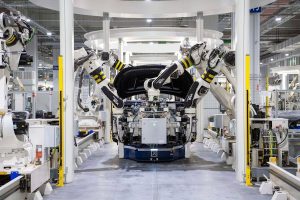Automation and Its Valuable Role in Global Industries

By now, we’ve probably seen enough sci-fi movies to know that automation is a key element in a futuristic world, with machines helping humans accomplish difficult and complicated tasks. With the state and pace of development of technology nowadays, however, we don’t need to wait for the future — the future is already here!
Industries all over the world, from agriculture to manufacturing, have long been harnessing the benefits of automation. Indeed, industrial-level automated solutions have been in play since the 1970s and some smaller applications have been recorded even as early as the 1700s.
Some critics argue that automation is disadvantageous especially in terms of versatility and job security. However, despite such backlash, automation remains to be a highly valuable asset in modern industries. Why? Here are just a few reasons.
Increased Precision and Accuracy
These are two of the foremost advantages of automation. Using high-precision motion solutions in combination with other components like robotic arms, automated solutions offer a much higher level of precision, accuracy, and repeatability than human workers. Eliminating or at least reducing human error is especially important in industries that produce highly delicate items. These include industries like aerospace engineering, semiconductor manufacturing, and medical device and pharmaceutical manufacturing.
Another benefit of increased precision and accuracy is the reduction of wastage. When you make fewer mistakes, you throw away fewer materials, which translates to lower costs and higher profitability.
Increased Productivity
Automation helps lower operational costs by taking over mindless, repetitive, and “boring” tasks so that human workers can focus on jobs that require more engagement and critical thinking. For example, computerization saves teachers from spending too much time creating schedules and processing grades. This frees up more of their schedule, which they can use to attend to their students’ concerns and interact with them in more meaningful ways.
Automated machines can also help address the shortage of skilled laborers in some industries, and are capable of much higher production volumes. Couple these factors with high caliber output (due to reduced human error) that meet or exceed quality standards and you have some of the most important keys to globalization.
Increased Worker Health and Safety
Some tasks in manufacturing plants and factories are either repetitive or hazardous, or sometimes even both. These tasks may cause health and safety problems ranging from minor strains and fatigue to more serious conditions like respiratory diseases or even fatal injuries.
Delegating these hands-on tasks to robots and other automated solutions and assigning your workforce to supervisory or maintenance roles will help increase workplace safety and improve employee health. This aspect of business is particularly important for compliance reasons. But more than that, taking care of your employees is one of the best ways to create a workforce that is physically, mentally, and emotionally equipped to help your company achieve its goals.
Increased Availability
Availability is especially valuable in information technology, and therefore any other industry that rely on IT for some or all of their operations like banking and e-Commerce. One of the prime examples of automation’s role in IT is the mitigation of system outages through an automatic save and recovery system and the round-the-clock monitoring. Restoration and recovery processes can also be conducted much more quickly with the help of automation, further reducing the financial and reputational damages that may be caused by network downtimes.
Automation can help almost any kind of industry to run like a well-oiled machine. We may still have to wait for some time before we achieve complete lights off manufacturing — that is, the concept of a fully automated factories that require no human presence — since humans are still needed to perform maintenance work and make critical decisions that machines simply cannot make. However, it can’t be denied that automation has already paved the way for globalization and opened new networks of opportunities for both business owners and workers.






